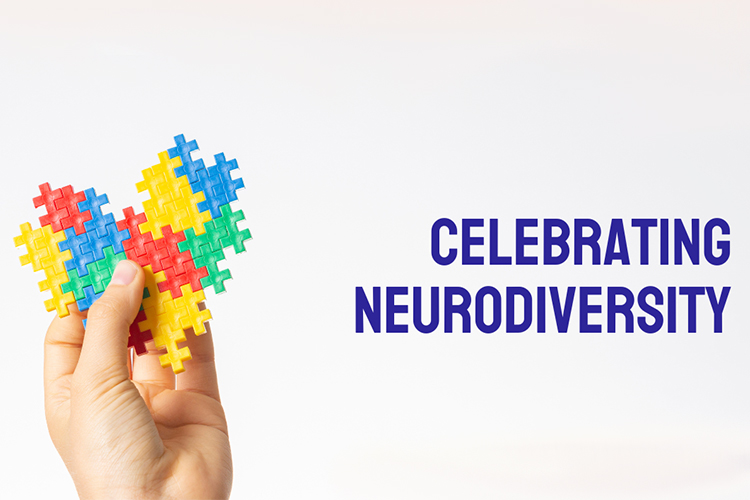Life is hard as it is for everyone, but life as a neurodivergent individual makes everyday feel like a chore. The world around us is a collection of different sounds, sights, smells, and textures. For most of us, all of these come together to form a beautiful harmony and make our lives exciting. For neurodivergent people however, all this harmony is a nuisance, and a jumble of overwhelming sensations. Neurodivergent individuals wake up each morning hoping to not be a burden to those around them, and they go to bed hoping to have a normal day tomorrow. They spend their time perfecting their lives with the tools available to them, they get through everyday regardless of how hard it seems, and they teach us that resilience and strength are the most valuable qualities we could have.
In the grand tapestry of human existence, each mind creates a unique and irreplaceable piece. Neurodiversity is a term coined by Sociologist Judy Singer in the late 1990s. This vast concept bids us to view neurological differences, such as Autism, ADHD, Dyslexia, and more, as unique perspectives of experiencing the world, rather than as defects. It encourages us to celebrate the rich variety of human cognition.
In everyday life, neurodivergent minds often face challenges that neurotypical individuals may not fully understand or appreciate. For example, social interactions can be particularly daunting for those with autism, who may struggle to pick up on social cues or understand the unspoken rules of communication. This can lead to feelings of isolation and loneliness, as they may find it difficult to connect with others in a meaningful way. As a neurotypical individual, we may find it hard to connect with someone who has ADHD, as they are often forgetful, easily distracted, and impulsive.
As neurotypical individuals, is it right to avoid the struggles and difficulties of those different from us? No, we need to understand their pains, and the fact that they spend their days worrying about things we can’t even fathom. It’s our responsibility and our privilege to help others, and every step we take towards making life easier for them, is a step in the right direction.
Imagine a world where all the differences between us are celebrated rather than criticised. Imagine a classroom where every child’s learning style is not only accepted but also valued; or a workplace where our flaws are appreciated and turned into something positive. It’s important for us to embrace neurodiversity and make the world unchallenging to live in.
When it comes to education, we have all had the same experience. We all struggled with studying for tests, cribbed about the assignments due, and longed for our vacations. Do those suffering from Autism or ADHD have the same issues as us? Of course they do, but they face many more difficulties as well. Traditional teaching methods often cater to a narrow spectrum, leaving neurodivergent students feeling isolated and misunderstood. When educators adopt a neurodiversity-friendly approach, they unlock the potential within each child. For instance, a student with dyslexia might struggle with traditional reading methods but could excel through visual aids and hands-on experiences. Meanwhile, a student with ADHD might find that their focus and engagement transcends in an environment with frequent breaks. By embracing diverse teaching strategies, schools not only support neurodivergent students but also create a richer, more dynamic learning environment for all.
In the workplace, the benefits of embracing neurodiversity are equally necessary. Neurodivergent individuals often possess extraordinary talents that conventional hiring practices overlook. Those with autism tend to have a meticulous attention for detail and are talented in pattern recognition. These are invaluable qualities in fields such as data analysis, and these are qualities that don’t come all too easily to neurotypical people.
However, the journey towards a truly inclusive society begins with understanding and acceptance. Social integration remains one of the most significant challenges for neurodivergent individuals, who often face stigma and discrimination. Changing this narrative requires a collective effort in order to let neurodivergent individuals feel welcomed and valued as members of our society.
Ultimately, embracing neurodiversity is about recognising the inherent value in every individual. It calls for a societal shift towards inclusivity, where differences are not just tolerated but celebrated. By creating environments that accommodate and appreciate diverse neurological profiles, we unlock the full potential of all individuals, leading to richer, more innovative, and compassionate communities. Embracing neurodiversity is not just an ethical pursuit; it is a pathway to a more vibrant and inclusive world.
